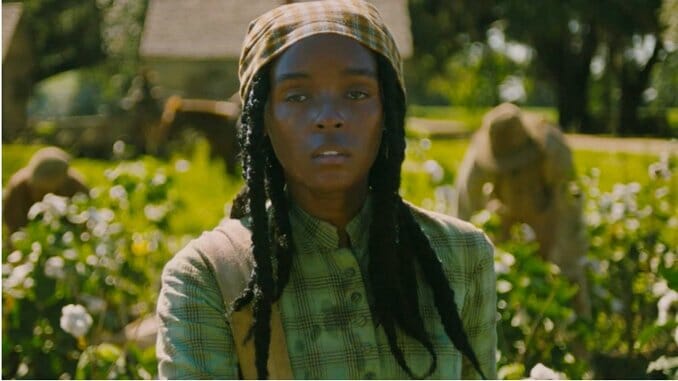Run Away from Antebellum as Fast as You Can

The first step anyone should make to prepare for Gerard Bush and Christopher Renz’s COVID-delayed feature debut, Antebellum, is to shove all thoughts of Octavia Butler’s Kindred out of their minds. Antebellum, marketing flimflam aside, is not Kindred. Knowing as much allows viewers to better appreciate the former on its own dreadful terms while leaving them pining for the latter. Butler’s tale of time travel and American slavery pays fundamental attention to narrative in tandem with plot, and actually bothers to consider its characters as human beings and build a structure around its basic conceit. It’s a closed circuit and a complete work.
-

-

-

-

-

-

-

-

-

-

-

-

-

-

-

-

-

-

-

-

-

-

-

-

-

-

-

-

-

-

-

-

-

-

-

-

-

-

-

-








































